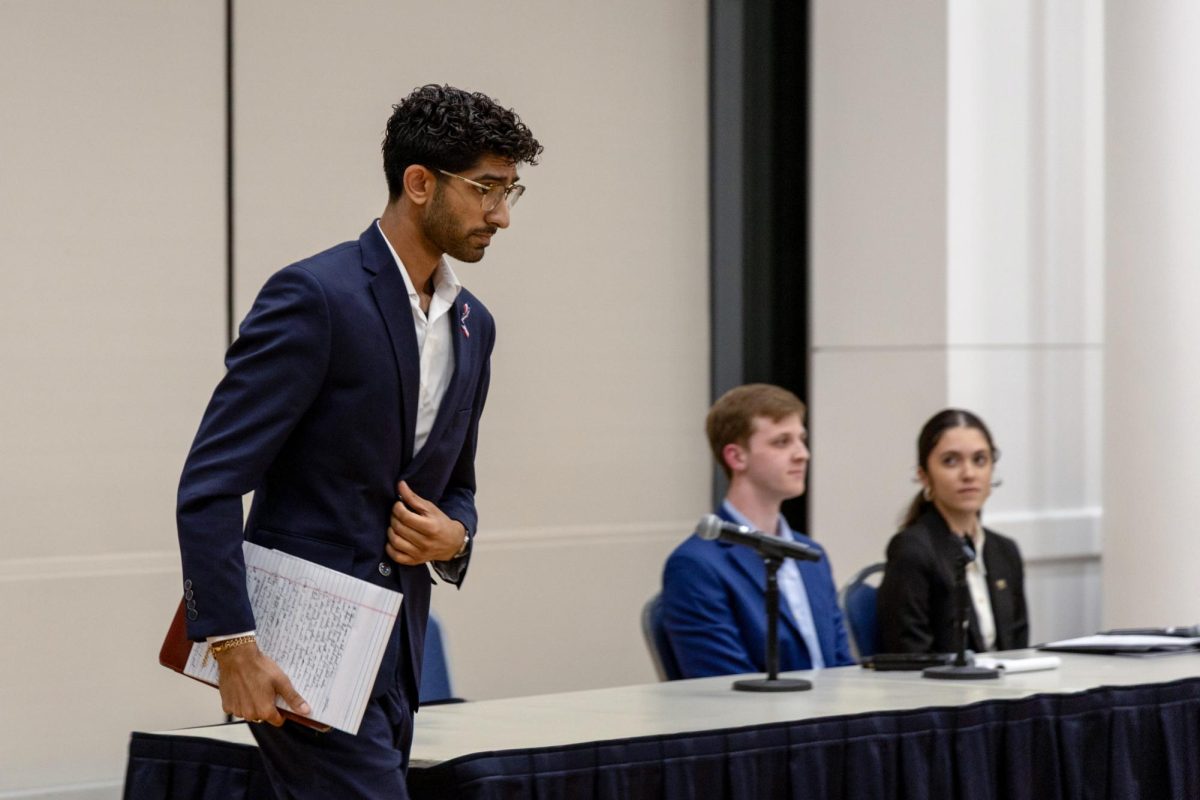When GW fired Doug Guthrie for $13 million of overspending last week, the University did not just lose an ambitious business school dean.
Administrators also got rid of their chief China strategist just as GW explores opening a campus in Beijing. Now, after GW’s plans for a three-continent degree dragged last year, GW’s international campaign has to regroup.
“In a way, it’s a test of how important it is to the University leadership to move forward with something in China,” said Richard Edelstein, a research associate at Berkeley University’s Center for Studies in Higher Education. “So it certainly doesn’t help the cause if they fired a key person, but it doesn’t necessarily result in a serious problem that can’t be confronted in various ways.”
GW has heaped time and money into the country, where they have added academic programs, research partnerships and donor connections since Guthrie came aboard three years ago.
For years, colleges have struggled to dig deep stakes into China. But since Guthrie was hired as dean in 2010, the GW School of Business started two masters programs in Suzhou, China and landed high-profile partnerships in the country.
People like Guthrie, an expert in Chinese economic reform who is fluent in Mandarin, help bridge the gap between universities in the two countries, said Chronicle of Higher Education reporter Karen Fischer, who specializes in international education.
“China is a complex place to navigate and one where relationships matter. Having someone who is familiar with the culture and can build bridges always helps,” she said. “How big of a loss Guthrie’s departure is depends on how much the broader university bought into the importance of the work in China.”
University officials say they have made enough progress and gathered enough buy-in for Chinese expansion that Guthrie’s departure will not curb those efforts. In particular, the University has been in talks with Beijing-based universities like Renmin University and the University for International Business and Economics.
Knapp fired Guthrie after they disagreed on how to move forward after he spent $13 million more than planned last year on GW School of Business programs, but maintained that planned growth in China would continue without him. Lerman will temporarily steer its operations there.
“Dr. Guthrie indeed has important relationships that were helpful in developing our initiatives, but he is by no means the only member of our faculty or administration with important relationships in China,” Knapp said in an email Wednesday. “Our potential partners have already indicated their readiness to continue our discussions.”
Guthrie was also the executive director for Qiaohua Management Consulting, another position stripped from him last week. The firm, located in China, has three Chinese employees working on University initiatives since foreign companies cannot hire Chinese residents who live in China.
David Shambaugh, director of the China Policy Program in the Elliott School of International Affairs, said many of GW’s expansion in China would continue, citing the strength of various China programs within his own school.
He added that Guthrie’s was not the University’s only China expert, and that many others at GW, like himself, are also fluent in Mandarin and travel annually to China. But he added that the University would benefit from greater coordination of its China-related programs.
Shambaugh warned that as the University looks to increase its presence in China, they should study universities like New York and Duke.
“GW needs to give very careful, deliberate, and strategic thought as to what kind of presence it seeks in China, and it needs to carefully study the successes and failures of these other universities’ experiences before embarking on our own initiatives,” he said in an email.
Hired away from the No. 5 Stern School of Business at NYU in 2010, Guthrie’s vision for expansion in China was a significant reason why he was selected as the business school dean. Some business school faculty had objected to the hire because of his lack of management experience.
“There is no question that Dr. Guthrie’s knowledge of China was an important part of the vision he brought to the deanship, and that vision was an important factor in the faculty search committee’s selection of Dr. Guthrie as a finalist for the position,” Knapp said.






